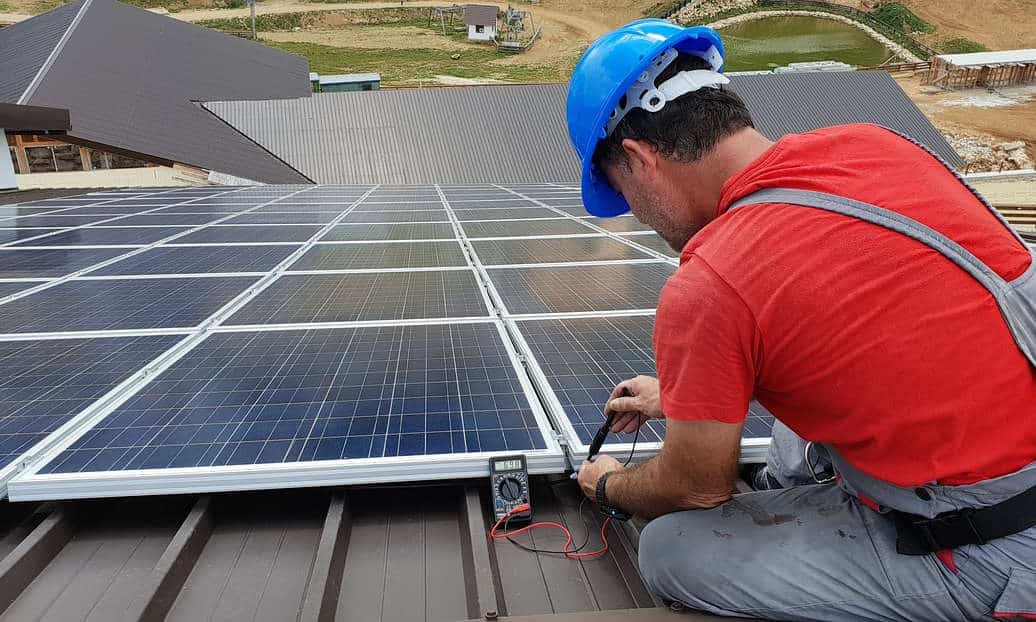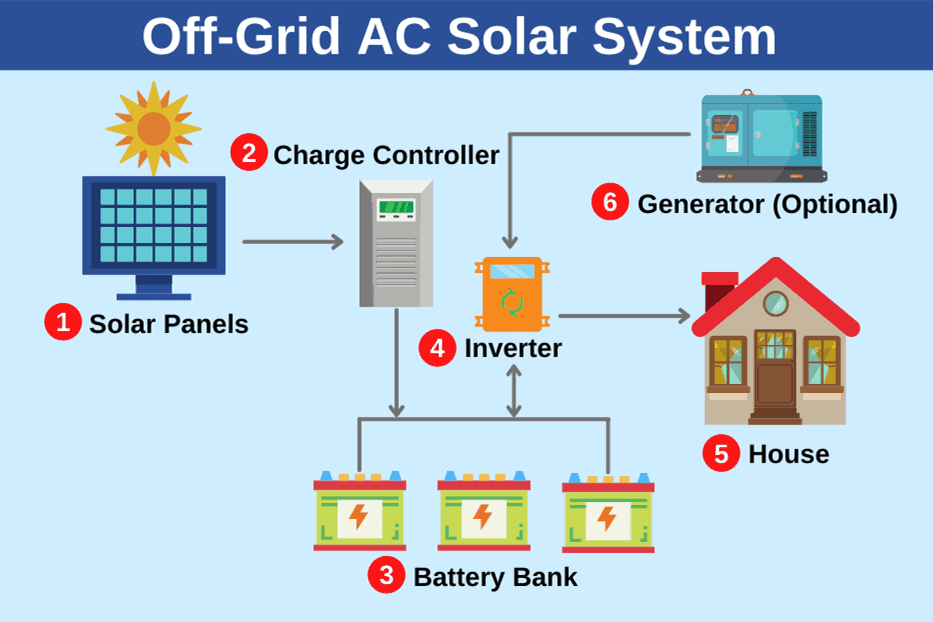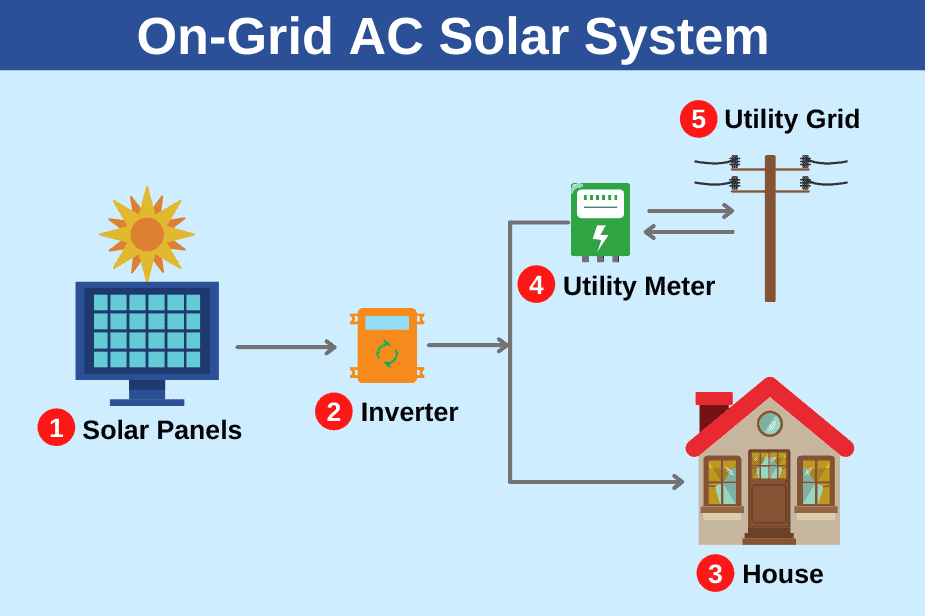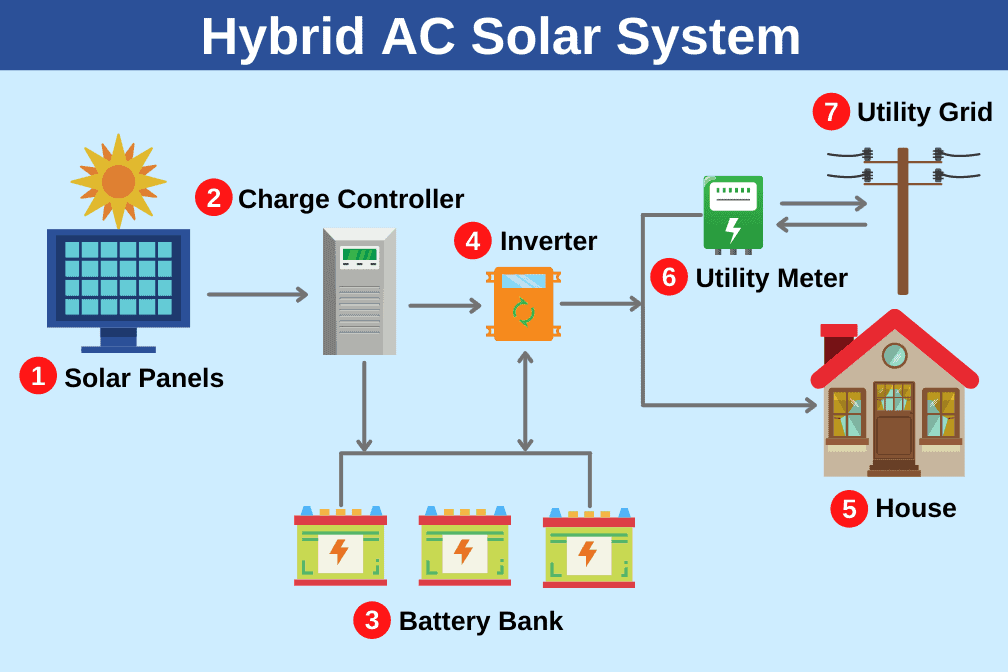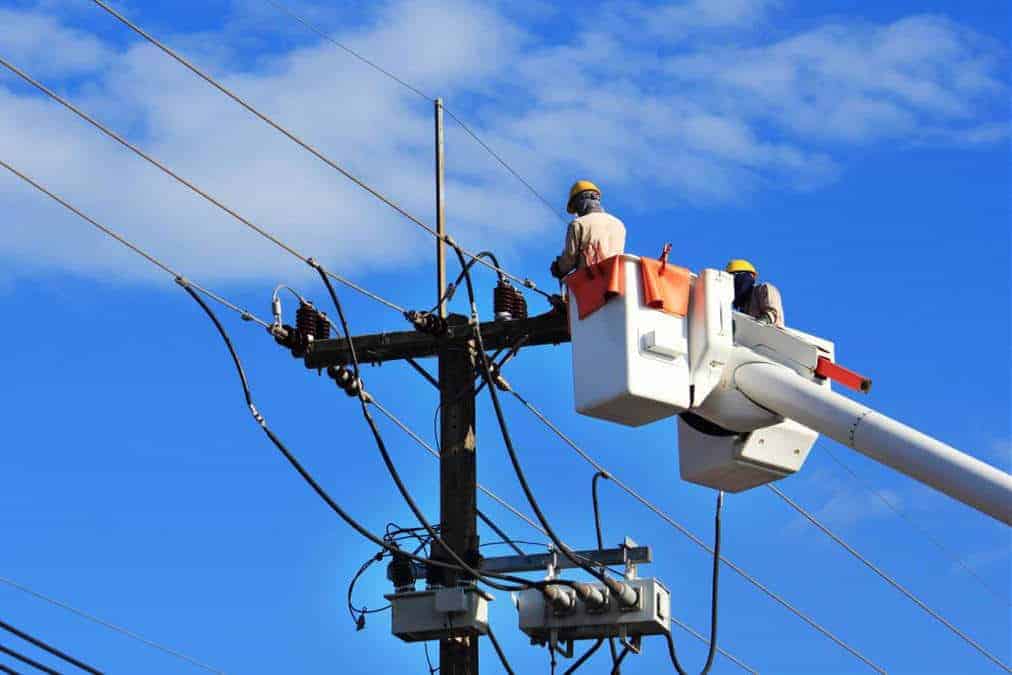I’m planning to install a home solar system, perhaps you’re thinking about it too? As prices fall and technology improves, solar is becoming a great way to save on electricity bills and do your part to help the environment. One question I had, though, was what happens to your solar system and what should you do when there is a blackout?
I knew that there were several types of solar systems, but until I did some research, I didn’t understand how each one worked when my mains power dropped out. But now I’ve done some detailed research that I want to share with you. So here’s my complete guide to what to do if you have solar and the power goes out.
Quick background on how solar systems work
Let’s start with a very quick solar 101. You probably know some of this already, but it’s worth a quick recap just so we know what we’re dealing with.
All home solar systems, whatever the type, use solar panels to collect light energy from the sun and convert it to electricity. There are several types of solar panels, but all of them use materials that work by creating a photovoltaic reaction when they come into contact with energy from the sun.
This photovoltaic reaction frees electrons, which are subatomic particles that carry an electrical charge. Your solar system collects this energy as direct current DC electricity, which it can convert to the Alternating Current AC energy we use in our homes by using an inverter.
The type of solar system you install will determine how it operates when your mains power goes out. So let’s take a look at the different types of home solar systems.
The 3 Types of the home solar system
Off-Grid Systems
if you install an off-grid solar system in your home, then this will be entirely separate from the electricity supply offered by your local utility (if you use one). If you have a large enough off-grid solar system, then you might not need to use mains electricity at all.
When the solar panels in your off-grid system collect electricity, where do they store it? The answer, of course, is in batteries. An off-grid system works in the same way as a solar-powered watch or pocket calculator. The electricity generated by the solar panel charges your battery storage when the sun is shining. Then these batteries give you electricity, even at night when your solar panels aren’t working. So you can use power 24 hours a day.
Batteries store power in the form of chemical energy, which you can use to give you electricity on-demand, providing electricity to your home whenever you need it.
On-Grid Systems
Today, on-grid solar systems are the most widely installed solar solutions in the United States. In an on-grid system, your solar panels generate electricity that passes directly into your local electricity grid.
Your home solar system becomes a part of a massive network of interconnected electricity producers and domestic and industrial end-users. This system has significant advantages both to the individual and to the network as a whole.
During the daytime, your solar panels may generate more electricity than your home needs. At these times, what happens is that any extra energy that you don’t use gets transferred back into your mains power supply. At these times, you will see your electricity meter going backward because you are selling your electricity back to the network and reducing your fuel costs.
At night, when your solar system isn’t producing any power, you draw electricity back from the network, which incurs charges. At the end of your billing cycle, your net power usage is calculated by subtracting your use from the amount of electricity your solar system has generated.
Since all of the electricity generated by your solar panels flows directly into the network, this type of solar system is more straightforward in that you don’t have a battery storage system in your home. This lowers the cost of the system but has its drawbacks, as you will see.
Hybrid Systems
Hybrid solar systems are also becoming a common choice for home solar power. A hybrid solar system is almost the same as an on-grid setup where your home connects to the local utility’s power network. The difference is that you have the ability to store electricity in a battery bank in your home.
These versatile and flexible systems allow you to enjoy independence from the electrical grid when you need it but also give you the ability to sell back excess power and use grid electricity if your home supply runs out.
Off-grid solar systems and mains power outages
Since off-grid solar systems don’t connect to the grid, they aren’t affected at all by power outages. When the mains power goes out, everything continues as usual, and your home has power.
On-grid solar systems and mains power outages
if you have an on-grid solar system and the power goes out, you will completely lose your electricity supply.
Even if it’s daytime and your solar panels are generating power, your on-grid solar system won’t be able to use that power or transfer it back into the network during a blackout.
There are two reasons why this is the case.
- Storage – Your home doesn’t have any batteries to store a reserve power supply. It is entirely dependent on supply from the network.
- Safety – When the power grid is down, it’s essential that no systems, solar or otherwise, are putting electricity back into the network. This is vital for the safety of anybody working on the supply. So when the system goes down, safety protocols come into place that prevent any power from going back in. This video gives a good summary of this safety imperative.
Hybrid systems and mains power outages
when there is a network power outage, a hybrid solar system allows you to continue to power your home with the energy that you have stored in your batteries. How long you can continue using power depends on how much storage your batteries can hold and how much charge they currently have.
To ensure you always have enough power during a power dropout, just make sure that you have a large enough battery bank to store the energy you need. As a routine precaution, make sure that you keep your home batteries adequately charged.
What happens if the power goes out in an off-grid system?
If you have an off-grid solar system and the power goes out, this means that you’ve run out of stored electricity. Since you aren’t connected to the grid, you can’t rely on power from other sources to get you up and running. You will need to wait until your solar panels generate enough electricity to power your home again.
If you lose power during the daytime, then at least you know that your solar panels are immediately working to generate electricity. If you can disconnect non-necessary electrical items, then your essential electrical items will start to work again more quickly. But if your power goes off at night, there is nothing you can do until the sun rises the following day and your panels begin to generate electricity again.
If you run an off-grid system, it’s a good idea to have some simple backup devices like flashlights, emergency lights, and portable gas heaters.
If your off-grid solar system regularly runs out of power, then either you don’t have enough solar panels or you don’t have enough battery storage to meet your energy needs. You may need to add more solar panels and more battery storage or consider moving to an on-grid or hybrid solar system.
The best ways to protect your solar system from blackouts
- Installing a hybrid solar system is the best way to protect your home against power outages. If the mains power goes down, you can use the energy you have stored in your home batteries. And you can protect yourself from draining your battery by keeping it recharged from mains power.
- If you prefer an off-grid solar system, then you can keep fully charged batteries separate from your system to use in an emergency. You can also keep backup devices like torches and other battery-powered electrical items to use if your network goes down.
- If you have an on-grid solar system and the power goes down, there’s nothing you can do until it comes back again. You are at the mercy of the network, and it’s wise to have emergency lights and other backup power sources ready for use.
If you have any questions on this guide to what to do if you have solar and the power goes out, please share them in a comment.

